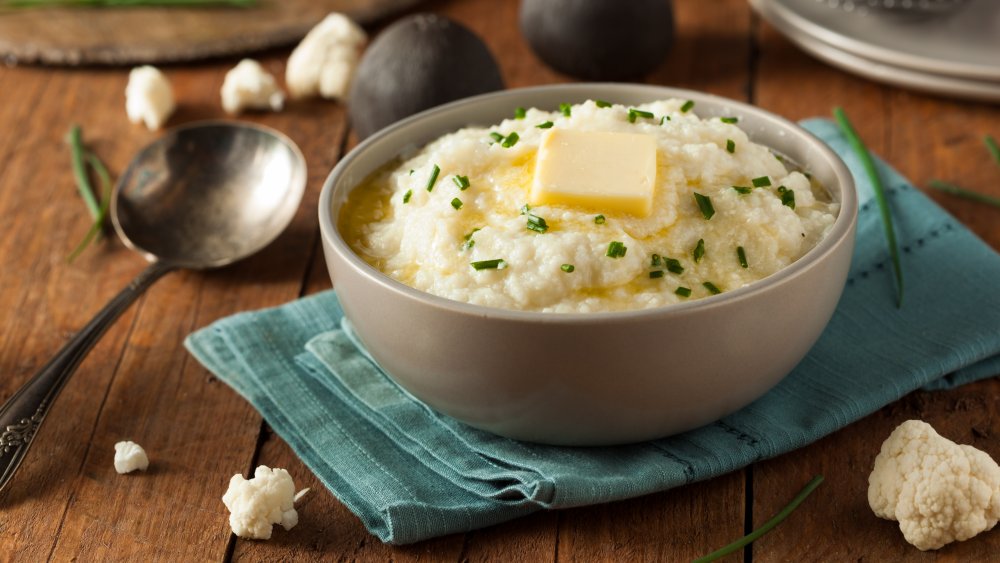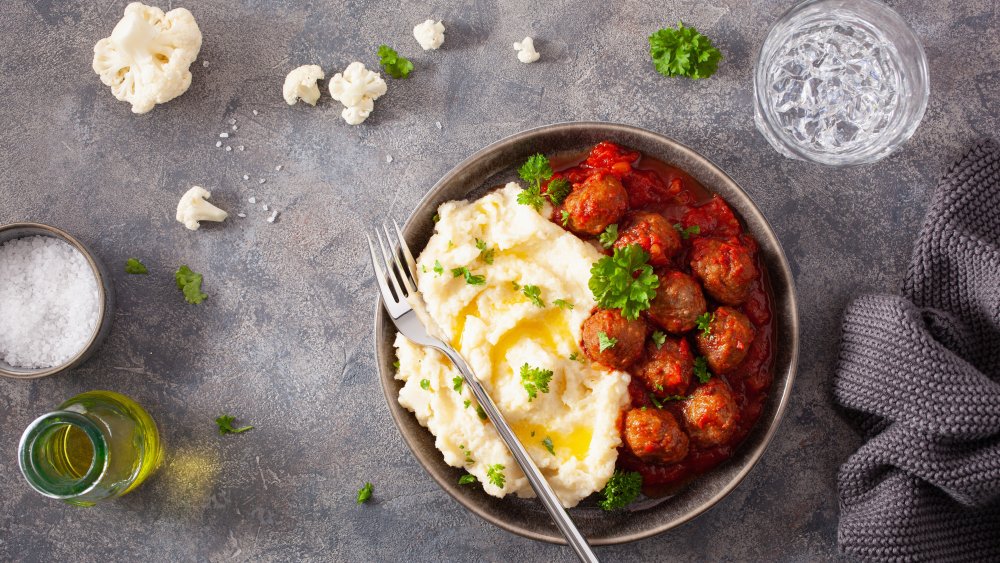The Real Difference Between Mashed Cauliflower And Mashed Potatoes
Cauliflower has taken consumers by cruciferous storm, showing up in everything from pizza crusts and pasta to hummus, "chicken" tenders, pretzels, and more. Hailed for its low-carb, keto-friendly attributes, cauliflower is being used to replace flour, rice, and even corn in some of our favorite foods. But what about one of America's most beloved side dishes — creamy mashed potatoes?
Cauliflower's rise to center stage stems from the popularity of plant-based diets, as well as those that are gluten-free and low-carb. The versatile vegetable has a mild taste, great nutrient profile, and is undoubtedly low in carbohydrates. It's recommended that we consume 3/4 cup of cruciferous vegetables daily, and cauliflower is certainly a good option.
Mashed cauliflower has an earthy, nutty flavor that's slightly more complex than potatoes. While the texture is similar, cauliflower mash tastes like cauliflower and mashed spuds taste like, well, potatoes. But what's the nutritional difference between mashed cauliflower and mashed spuds? And, more importantly, can you create a creamy, dreamy mash that satisfies cravings while keeping carbs in check? The answer is a resounding yes; mashed cauliflower is an excellent, low-carb alternative to mashed potatoes. And, side-by-side, there are some noteworthy nutritional differences.
Nutrition in mashed potatoes vs. mashed cauliflower
Let's talk stats first. One half-cup of cooked cauliflower has 14 calories, 2.7 grams of carbohydrates, 1 gram of protein, 1.4 grams of fiber, and a glycemic index of 1. One half-cup of cooked potatoes has 67 calories, 15.6 grams of carbohydrates, 1 gram of protein, 1.4 grams of fiber, and a glycemic index of 7. The glycemic index (GI) ranks carbohydrates based on how quickly they raise blood sugar levels; a low-GI diet may lower the risk of heart disease and type 2 diabetes.
Nutritionally, cauliflower is a great source of vitamin C, delivering 100% of your daily recommended amount in one cup (raw). One cup also provides one-quarter of your recommended vitamin K. Swap the cruciferous veggie for mashed potatoes, and you'll get more immune-boosting vitamin C and bone-strengthening vitamin K. It's worth noting, too, that you can't over-mash cauliflower the way you can potatoes, which happens thanks to the extra starch in potatoes.
Potatoes, on the other hand, contain potassium, some vitamin C and B6, and, if you include the skin, fiber too. So while you may be getting a better overall boost from cauliflower, potatoes have their own benefits, too.

